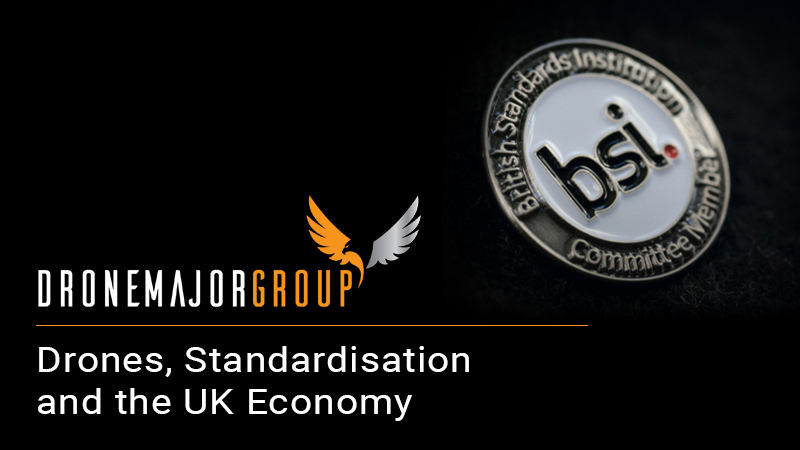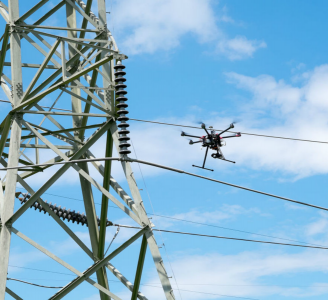Editorial Feature
Drones, Standardisation and the UK Economy
Words By: Drone Major
Drones, Standardisation and the UK Economy
The drone industry is stirring up both praise and controversy, proving that rapidly developing technology sectors are never easy to control whilst underpinning the urgent need for standardisation in the industry.
In terms of the societal benefits, air drones or UAS (Unmanned Aircraft Systems) are becoming an invaluable tool within many industries, offering efficient and safe solutions to problems that previously required extensive labour and time. Additionally, as externally predicted, air drone technology has the potential to increase the UK GDP by £42 billion by 2030… showcasing the potential for continued advancement and integration across all environments.

If the UK industry is to gain maximum benefit from the many advantages that industrial drones can provide, it is essential that recognised safety and quality standards are developed which can keep up with the pace at which the technology is evolving.
One key area that requires an urgent need for standardisation is the training of UAS operators/pilots and, in time, those who train them. This will ensure that the thousands of much-needed UAS pilots will be able to operate these complex aircrafts safely in an industry agreed safe way and to a level of quality which will reliably deliver the required results and essential data that industry needs. Fortunately, the UK is already leading the world in this field.
BSI 9122:2018 - Qualification and approval of UAS operatives - UAS Pilot Level 1 was created by a group of industry experts to detail precisely what degree of knowledge and skill a drone pilot must prove to be qualified under the standard. The BSI standard also works cohesively with the CAA requirements for drone pilot training, serving as a complement to the CAA’s PfCO (Permission for Commercial Operations). Most recently, it has been decided that BSI standard will be used as the template for the ISO standard, which is currently under development. The hard work already done by the UK’s experts will now be integrated and built upon in the ISO model. The UK’s best interests will continue to be considered as this important work advances.
Keeping BSI, CAA and ISO in consideration, it is critical for companies and organisations to consider the impact of standardisation in the future of their operations. With drone technology clearly impacting the economy at augmenting rates, complying with standards and thinking ahead is an important step in ensuring participation in the latest technological revolution.
Mark Caney, Training Strategy Director of Drone Major Group, has played a vital role in establishing the BSI standard, working closely with CAA and now ISO to ensure practical, safe and progressive policy that both protects and encourages best practice. Mark is also now paving the way in the development of wide reaching ISO standards on training for those involved in the operation of UAS.





